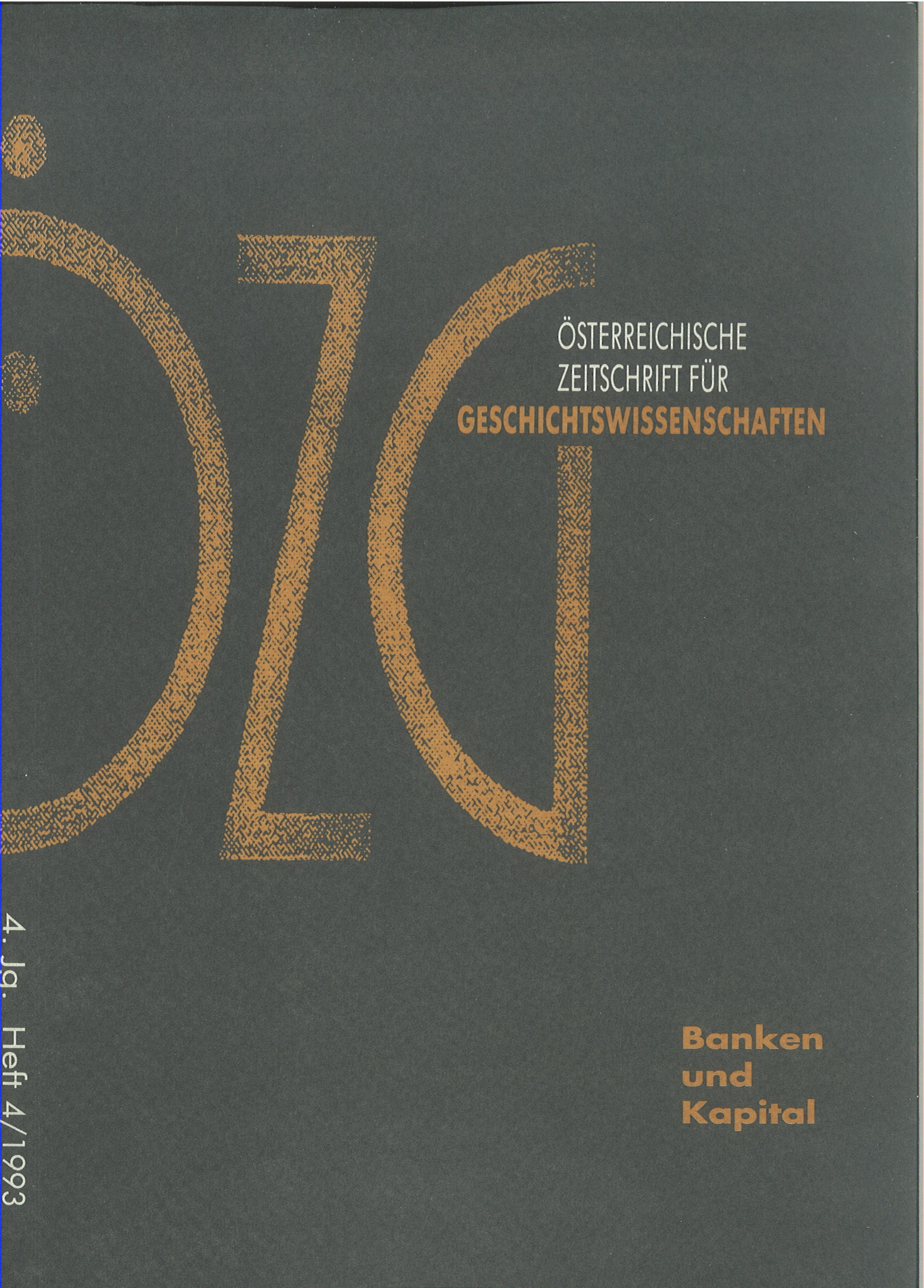Multinationales Banking im Donauraum?
Die Geschäftspolitik der Wiener Großbanken 1918-1929
DOI:
https://doi.org/10.25365/oezg-1993-4-4-6Abstract
Autumn 1918 was a turning point in the history of the Viennese banking system. Virtually over night, the great commercial banks were confronted with the necessity of giving up their traditional domain of business (which had covered the whole Danube basin) or to reorganize it on a multinational scale. Although the bank managers soon decided in favour of the second alternative, Vienna could never regain an important role as a financial centre of international relevance. The reasons for the decline were the weakening of the capital basis of the banks (a consequence of both inflation and economic repercussion of the breakdown of the Habsburg Empire), and the adverse economic development in Central Europe during the 1920s. The banking crisis of 1931 (which can only be taken into consideration implicitly) only accelerated the process of financial dissolution between Austria and the other successor states, and definitely determined the decline of Vienna as a banking place of international significance.


